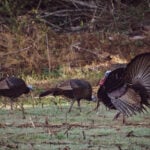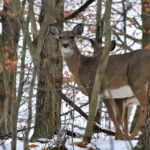Perusing the hunting section of a local farm store one spring day, I asked the associate where the scent free soap and sprays were. “Man, you know turkeys can’t smell you, don’t you?” he said. “I do, I said, but deer can, and bumping deer can ruin a turkey hunt if they spook and run through the bird(s) you’re working,” I replied.
For that reason, I try to remain as scent-free as I can when hunting turkeys, but there is another, probably more important reason to play the wind when hunting for them.
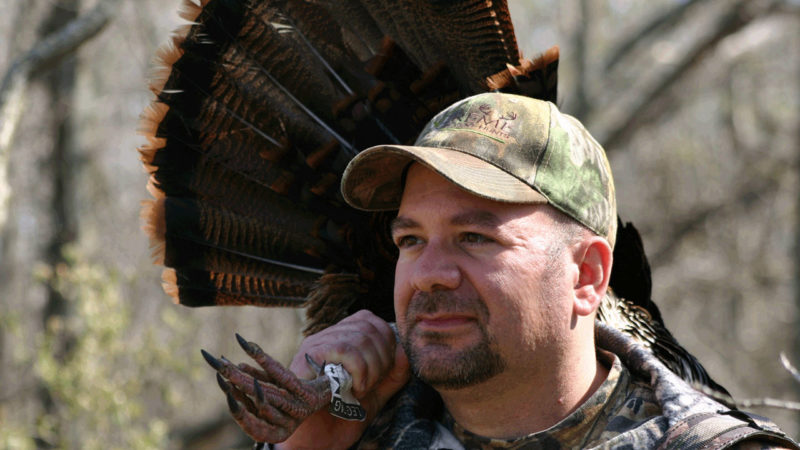
Unlike with whitetails, getting winded when hunting turkeys shouldn’t be of concern to you – Getting busted by their periscope-like, seemingly X-Ray vision should, however. But what I have learned over the years chasing longbeards is that usually, the wind plays a factor in how they travel.
In the spring a gobbler’s main focus is to breed with the hens. In order to locate prospective mates, gobblers gobble and expect receptive hens to march to them, pinpointing their position by honing in on their gobbles. Likewise, receptive hens actively seek willing gobblers by yelping. Once a gobbler hears the hen’s yelps, he in turn will gobble so that she can find him.
Now consider what this means to you – the hunter. When a gobbler is seeking out receptive hens for breeding, he listens for their yelps, clucks and purrs which indicate she is seeking company. Gobblers can maximize their effectiveness and effectively cover more territory by traveling with the wind in their face when on the move looking for lovesick hens. It allows them to hear the hens from greater distances, therefore reducing the amount of tracks they have to make to check the same area.
The more hunting seasons I got under my belt, the more apparent it became that, while not absolute, often-times gobblers will travel into the wind when searching for hens. Remember this when setting up decoys and positioning yourself in order to be prepared for a shot from downwind.
Take a hunt of mine during a particularly rough season years ago as an example. I had been hunting a particular flock of birds for a few days without any luck. The gobblers became tight-lipped after hitting the ground in the mornings and weren’t very receptive to my best efforts at sounding like a lonely hen.
On the third morning of my hunt something had to give, so I set up in an area where I thought I would catch one off the roost, yet where I would have backup birds that had been roosting just across the field in another hollow in case I needed to make a quick move to get back in the game.
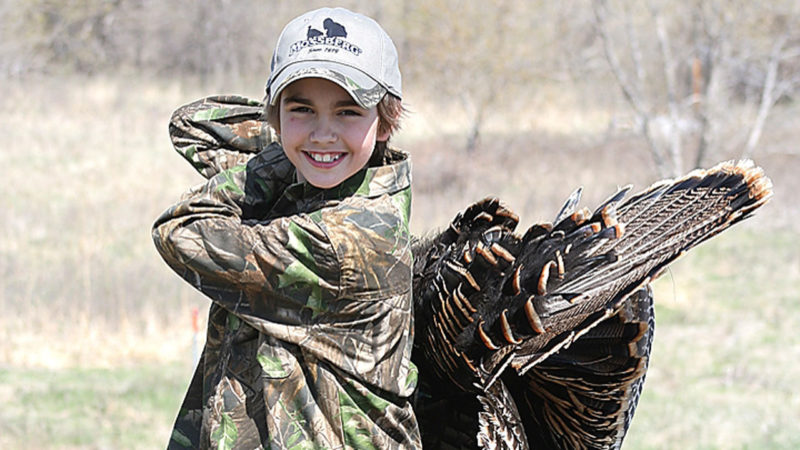
As luck would have it, the birds I had hoped to ambush just after fly-down that morning roosted across the field and down the next hollow from where they had been the previous three nights. I now had to shuffle a mere eighty yards or so across a small depression to a blind that I had previously set up in the crest of the field in order to get into position for my plan B birds – yeah right!
By the time I made it to the edge of the field, I could hear one spitting and drumming just over the rise in the middle of the field. I had to stay put and hope to call him in. It didn’t work, and he eventually moved on. By this time, gobbling had come to a stop and the woods sounded dead. With no real plan, I just made my way to the blind and plopped down.
From time to time I would pull out my slate call and give a few sweet yelps and clucks. After about an hour of doing so without a response, I finally struck a bird from a long way away across a road. The bird was far enough away that I didn’t think much of it, but I had nothing better to do, so I decided to go for broke and called sporadically to the distant bird. Honestly, I thought I was just wasting my time – until a while later when a gobble came from the corner of the field.
A few sweet hen calls later and I was watching the bird crest a hill about twenty-five yards in front of me, accompanied by three other gobblers. The rest is, as they say, history.
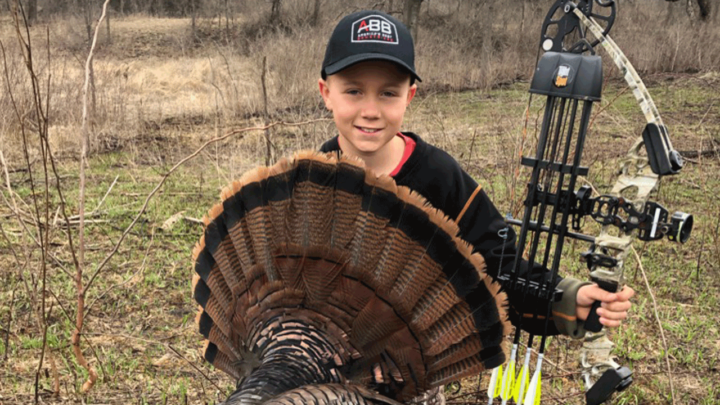
After the hunt, I began analyzing what may have lead to my unlikely success. The Quartet of gobblers undoubtedly had to be lonely, for sure, but they came from a great distance to within a stone’s throw.
Was there more?
It was then, by chance actually, that I realized that the wind had been blowing in the direction that they had come from so it is quite plausible that had it not been that those turkeys would have never heard my calls in the first place.
It also stood to reason that they may possibly have been traveling into the wind on purpose, specifically to gain an advantage when listening for hens. Since that day, I usually try to at least pay attention to the wind direction when hunting turkeys and more often than not I find that they do travel with the wind in their face.
Likewise, it only makes sense that if gobblers head into the wind that hens do too. This would allow them to pick up a gobble from afar as well. And, while hens aren’t legal to hunt in the spring, gobblers are. Find the hens and you’ll find a gobbler.
Conclusion
The bottom line? Assuming that turkeys are going to travel into the wind each and every day is certainly a stretch, but in the cat-and-mouse game of turkey hunting, there are going to be hunts where you will need every tool you can think of and then some.
Windy days are tough. Use them to your advantage. Get closer so a bird can hear your calls. You can be more aggressive in your approach when you’re playing the wind for turkeys.
While it may sound absurd, playing the wind for turkeys can tip the odds in your favor.

 By
By 